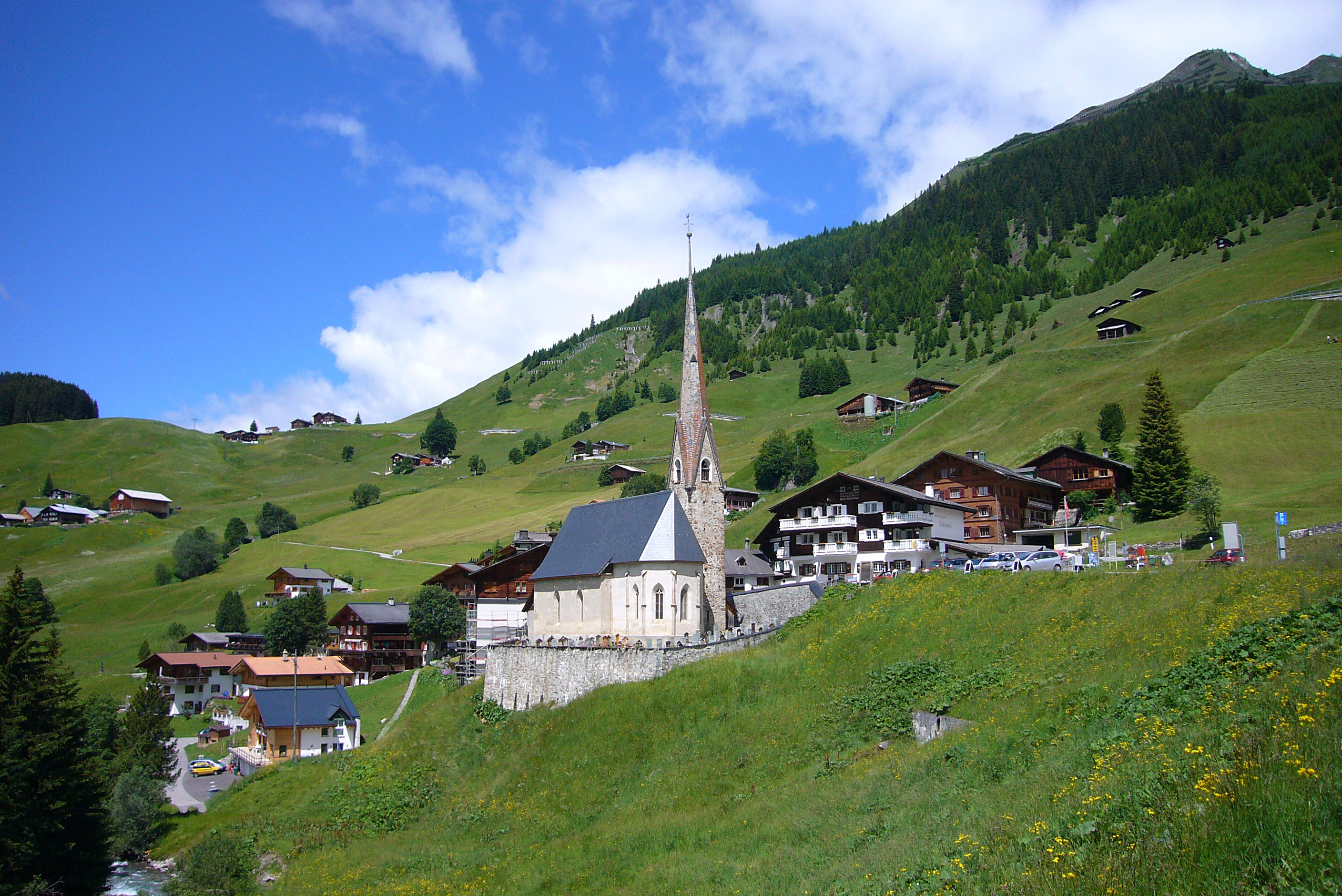
Mountain community embraces foreign voters

St Antönien might be off the beaten track, but the commune of 360 people in canton Graubünden isn’t out of touch: a solar power station linked up to avalanche barriers is being planned and foreigners can now take part in local politics.
Six months ago, foreigners who had lived in St Antönien for at least five years were given the vote. Hans Rieder, the commune’s 66-year-old president and member of the centre-left Social Democratic Party “with union sensibilities”, says this fills him with pride.
The move towards political participation was started by a Dutch B&B owner who had lived in St Antönien for ten years and whose children went to the local school.
The motion was approved unanimously at the communal meeting in December 2011, although a few people abstained.
Konrad Flütsch was one. The 85-year-old didn’t think “it was urgent at the moment”, adding it was for the young generation to decide.
The former village chronicler sits on a bench outside his mountain hut and looks down into the valley. He says politics today doesn’t interest him so much anyway.
Less sceptical is the retired joiner Kaspar Flütsch, who says he has no problem with giving foreigners a say. “Here you know the foreigners – they’re decent people. Otherwise I wouldn’t be impressed.”
Well accepted
Although Rieder says the debate was approved “quickly and without discussion”, he admits critical voices can occasionally be heard in the pub, muttering things like “now we’ll be run by one of them…”.
But these people either didn’t turn up or speak out at the commune’s general meeting, he said.
Hubert Zurkinden, former general-secretary of the Swiss Green Party, has run the Hotel Rhätia, which stands in the heart of St Antönien, for ten years.
For Zurkinden, who comes from Fribourg, it goes without saying that people who have lived there for five years and who have the same duties as the Swiss should have the vote – “especially in a model democracy, like the one Switzerland imagines it has”.
He wasn’t surprised when the motion to include foreigners was passed. The valley’s foreigners are well integrated and are accepted, he says.
“As a rule, people from St Antönien take decisions pragmatically and not based on any ideology,” he says, adding that he’s not losing any sleep over being outvoted by foreigners, who make up just over three per cent of the commune.
Maria Brosi-Flütsch, a farmer, also thinks it’s absolutely fine for foreigners to be able to cast their votes.
“They have children in the schools and pay their taxes,” she says, adding that there’s been hardly any negative reaction: only one outraged Graubünden voter wrote in – “and he lives in Spain”, she says with a smile.
“Cosmopolitan”
Of the dozen foreigners who live in St Antönien, ten come from the Netherlands, one from the South Tyrol in northern Italy and one from Egypt.
Mohamed Hossni, known affectionately as “Mohi”, grew up just outside Cairo – “where the new president Mohamed Morsi comes from”, he told swissinfo.ch.
The 34-year-old worked as a barman in five-star hotels on the Red Sea. Then love brought him to the mountains of Graubünden five years ago, where, with his wife, he runs the Gemsli guesthouse, which functions as the village pub.
Hossni describes his neighbours as “cosmopolitan” and is therefore not really surprised by the decision to let foreigners chip in to the political running of the commune.
He adds, in almost perfect local dialect, that being accepted as an Arab and Muslim isn’t a given.
The culture shock for him was initially massive. “It was hard,” he admits. “I then focused on the job and learning the language.”
Since then, the father of two young daughters has learnt to ski and has become a keen angler. The family goes on holiday to Egypt for three weeks every year.
“I’m proud to be an Egyptian, but my home is here,” he says.
No to riff-raff
In June, at the commune’s first general meeting since the decision was taken in December, not a single foreigner turned up.
“On the agenda was the planned solar power station, land use planning and local accounts – maybe it wasn’t interesting enough,” says Hans Rieder.
Hubert Zurbinden says one can’t expect the foreigners to appear at every meeting just because they now have the right to vote. “We don’t go every time either.”
Erwin Steiner, until recently responsible for roads and avalanches in the commune, says the people who live in the village are fine – “it’s the riff-raff and foreign criminals found in many places that we don’t want”.
The commune of St Antönien, which lies in canton Graubünden on the Austrian border at an altitude of 1,460 metres, has 360 inhabitants. Of these, 12 are foreign (3%).
According to the Federal Statistics Office, as of 2000,[update] 97.7% speak German, with Albanian being second most common (1.4%) and Romansh being third (0.3%).
30% of inhabitants are active in farming, 30% commute and the rest are involved in tourism.
The region has 14.5km of avalanche barriers and it is planned to attach solar panels to 8km of them and then link those to a solar power station. The energy generated could power 1,200 households.
Since 2004, communes in canton Graubünden have been entitled to give foreigners the vote at a communal level. St Antönien is the 19th commune to do this.
Giving foreigners the vote at a communal level is possible in only eight of 26 Swiss cantons. Five are in French-speaking Switzerland.

In compliance with the JTI standards
More: SWI swissinfo.ch certified by the Journalism Trust Initiative





























You can find an overview of ongoing debates with our journalists here . Please join us!
If you want to start a conversation about a topic raised in this article or want to report factual errors, email us at english@swissinfo.ch.